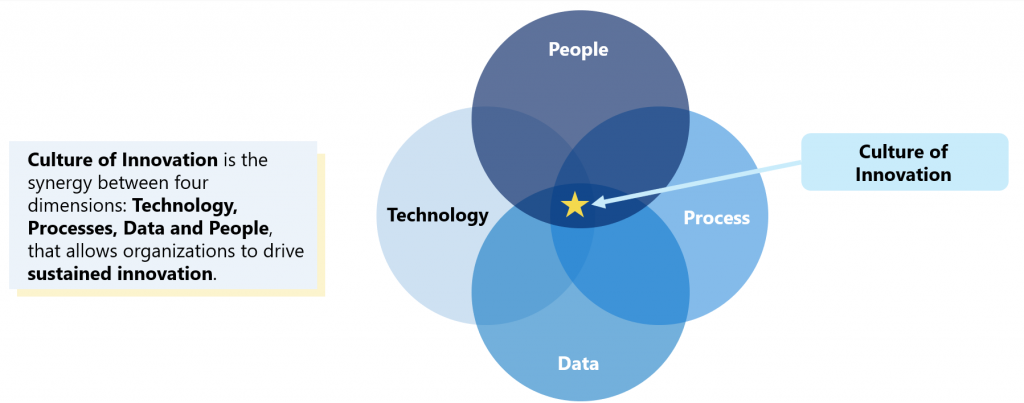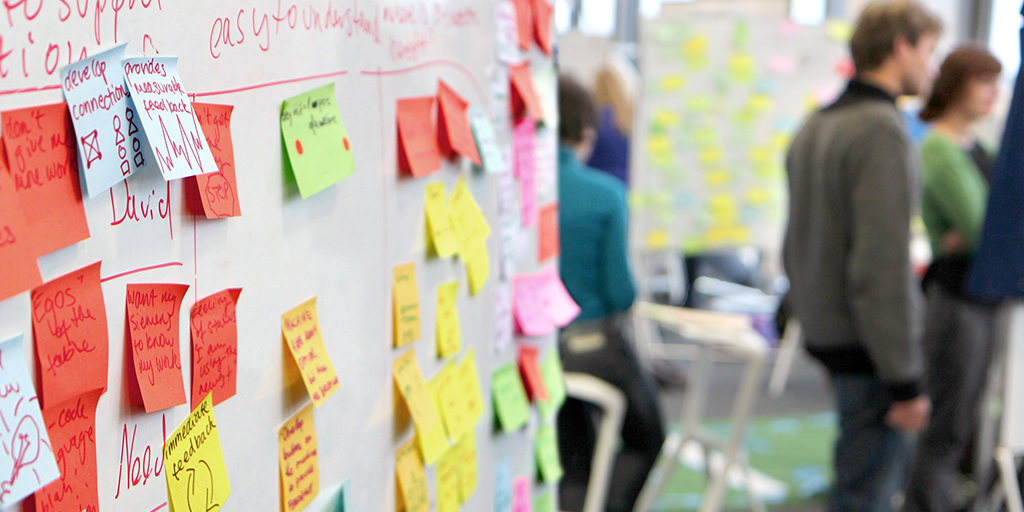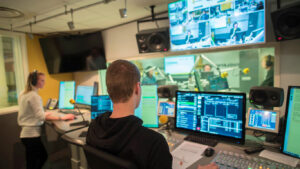Technology ≠ Innovation
When was the last time you read or heard about innovation in radio? That last conversation you had, or article you read about innovation in the radio industry, was really about innovation or just about new technologies? No, it’s not the same. Often, and not only in our industry, both concepts tend to be mixed up.
How they differ is actually not the most relevant question to formulate. Instead, we should answer what is innovation, why do we need it and how do we introduce it in our organisations?
Cambridge Dictionary defines Innovation as the use of a new idea or product. Ideas, not only products. And more importantly, it’s not the product or the idea itself, but the use we make of them. A dictionary definition will probably not be sufficient. Let’s have a look at what some experts think.
“Digital disruption, accelerated global competition and heightened consumer expectations are transforming industries around the globe, reshaping markets, creating new business models and overturning long-standing incumbents. As a result, companies are realizing they must become more innovative – and they must do it quickly – or risk being put out of business”.
These words are taken from an article written by Alex Goryachev, Senior Director of Innovation Strategy at Cisco, titled “To Drive Innovation, Focus on People, Not Technology”.
Goryachev says Innovation is more than just a new technological invention or new product development. It is an ongoing approach that connects personal passions with business goals, and it must be interwoven throughout every aspect of the organisation. Innovation is, he asserts, a mindset, a culture that can be cultivated and tells us how:
- It begins with management. Employees must see that innovation is a true priority for the leadership team.
- We need to make all employees connected to the company’s mission. Some companies wrongly believe that only the engineers and sales teams add real value. Everyone in the organisation can and must contribute.
- It’s crucial to emphasize that innovation is everyone’s job. Innovation does not belong to a certain business unit, it can come from anyone, anywhere at any time.
- Embracing diversity is important. Disruptive ideas don’t usually occur when everyone in the room comes from the same background and point of view.
- We must encourage curiosity and experimentation. Employees shouldn’t be afraid to take risks or fail.
Recently, Microsoft conducted a study on business resilience and recovery from Covid-19 pandemic disruptions. They surveyed more than six thousand decision-makers and workers across fifteen markets in Asia Pacific. Seventyfour percent of the organizations say that innovation is now a must for them to respond quickly to market challenges and ensure business resilience. The study goes deeper in describing what is a culture of innovation and how to assess maturity for it in organisations.
Culture of innovation, based on the results of this study, is defined as the synergy between Technology, Processes, Data and People, that allows organisations to drive sustained innovation.

Microsoft’s study recommends the best practices for organizations to introduce the Culture of Innovation framework:
- Creating an open and inclusive environment in the organisation for attracting diverse talent is encouraged. By rewarding and incentivizing change embracement, organisations can accelerate transformation.
- Technology increases resilience by allowing simplification, flexibility and agility.
- The value of data is capitalized by using insights to enable a culture of knowledge-sharing across the organisation, increasing enterprise-wide collaboration and decision-making.
- Processes should be redesigned in order to introduce continuous improvement by putting users in the center and capturing constant learning through a feedback loop.
Perhaps the most direct answer to whether innovation is the same as technology, I found in a publication from the Innovation Service of UNHCR.
It describes Innovation as a human-centered process that requires experimentation, iteration, a diverse team, and a desire to learn while failing. Four features of innovation are listed, none of them requires technology:
- Divergence: Innovation seeks to challenge the status quo, diverging from the usual and common perspective. We need to take a step back, look at the whole picture, and question our assumptions.
- Curiosity: When we don’t question and accept everything as is, we stop exploring and become complacent.
- Multidisciplinary Teamwork: Combining individuals with different profiles, perspectives, and technical expertise generates more comprehensive discussions and ideation which help avoid tunnel vision.
- Resilience: Resilience to continue ideating, experimenting, and failing is key to innovation. Iteration involves continuous testing to determine if our solution is effective in addressing the problem at hand. This skill is what makes innovators creative, imaginative and curious. There is no failure, only learning.
Does a culture of innovation exist in the Radio industry?
This is a question I would like you to answer by yourself. My hope is that you can challenge my own response, which very likely is biased by my personal experiences. These are some of the issues that I’ve encountered which, in my opinion, prevent actual innovation in Radio:
- Because innovation is perceived as only (or mostly) technology, it’s owned by and limited to some areas, departments or roles in the organisation, such as Digital or R&D.
- Change, experimentation, failure are not perceived as paths to learning. Essential teams in our organisations, like programming or on-air, are too often not encouraged to embrace them, but to act with risk aversion.
- Learning from data and insights aren’t shared across the organisation. We don’t explore how far down in the organisation, professionals in diverse roles can (and must) get involved in our data strategy and benefit from it. Instead, we confine our data science in departments usually isolated from the rest of the company.
- Interdisciplinary communication is not fluent enough. That produces an inconsistency: within many radio organisations the necessary mindset for experimentation and continuous improvement, the skills on iteration and continuous user feedback, already exist in specific departments. Large and critical sections of those radio companies are light-years away from those concepts though.
- Iteration and user feedback loops, in definitive, the elements that enable a process for continuous improvement are very basic for comprehension and relatively uncomplicated to implement. And yet, they are nonexistent in the strategy and methodology of the professionals closer to our main user, the listener.
Yes, technology is fancy. Innovation is much more than just the latest cool invention in our industry. I believe there’s much room for improvement in our search for real innovation.
My humble contribution consists in putting listener engagement measurement through data analysis in the hands of the on-air teams and coaching them to turn insights into continuous improvement by using iteration and constant listener feedback.
Let’s collaborate for a culture of actual innovation in Radio!
________________________________
More info:
Voizzup – Continuous on-air content improvement.
Kaizen Radio Podcast (in Spanish) – Mejora continua en antena.
“To Drive Innovation, Focus on People, Not Technology”, by Alex Goryachev.
“A culture of innovation fuels business resilience and economic recovery”, Microsoft Asia News Center.
“Why innovation and technology aren’t the same”, by Astrid Callegaro.
“Digital transformation is not about technology”, by Behnam Tabrizi , Ed Lam , Kirk Girard and Vernon Irvin.
“14 Different Types Of Innovation: Why One Size Doesn’t Fit All”, by Callan Hough.
“On the future of society, technology and innovation”, by Enrique Dans.




